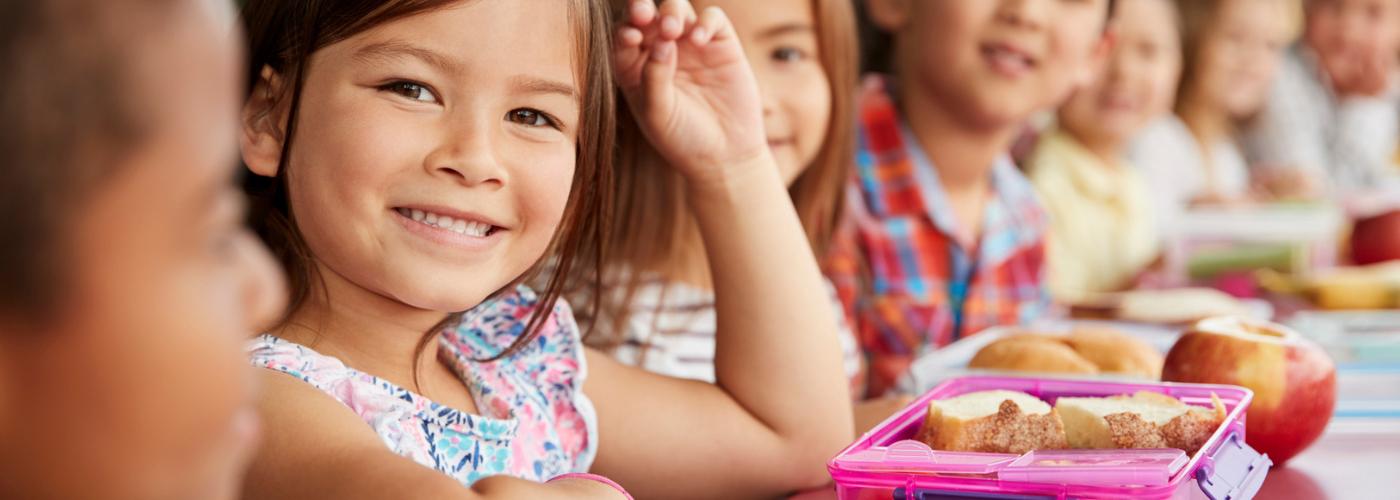Food in Schools
Food and nutrition play an important role in physical and mental wellbeing and also supports school achievement. Children can pay attention and learn better when they are nourished. The resources below can provide educators, school staff and volunteers with resources for teaching and talking about food and nutrition to support student's in developing a positive relationship with food and their bodies.
| Food Neutrality in the Classroom |
| Southwestern Public Health encourages a food neutral approach when teaching and talking about food. Food neutrality aims to remove labels, shame, judgement, and stigma from food and the people eating them. Learn more about food neutrality by reviewing this Educator Guide or visiting www.brightbites.ca. |
| Let's Get Cookin' Program |
|
Interested in helping students in your school community develop food skills? Southwestern Public Health, in collaboration with Middlesex London Health Unit, now offers Let's Get Cookin', a "train the trainer" school-based food skills program for children and youth. Southwestern Public Health provides training for school volunteers and staff on how to teach basic cooking skills in schools (grades 5 and up) through an online E-Learning Module. Once trained, you can off the Let's Get Cookin' program in your school community. Learn more. |
| #Food4Thought |
| #Food4Thougth is a school based four-session program that follows a Cook, Eat, Chat model. The goal of #Food4Thought is to build relationships and connectedness through cooking, eating, and chatting together. This program is appropriate for students in grade 7+ that would benefit from connecting with peers and or a trusted adult in the school community. Reach out to healthyeating@swpublichealth.ca to learn more. |
| Tower Gardens |
| Many schools across Elgin and Oxford have indoor growing towers (tower gardens) which allow them to grow fresh vegetables all year long. Schools and students in our community have grown lettuces, cucumbers, tomatoes, radishes and flowers in their tower gardens. Learn more. |
| Reducing Weight Bias |
| How we talk and teach about weight, shape and size in schools impacts students body image and wellbeing and can have unintended negative effects. Find resources to help support body inclusive schools that support students of all body sizes and overall health without focusing on weight on our Reducing Weight Bias page. |
| Disordered eating and eating disorders |
|
Diet and weight loss talk is so common in our society that it's really hard to feel good about our bodies and the food we eat. Eating disorders and disordered eating are becoming more common. In 2019, 48.7% of youth 12-17 surveyed in the Southwestern Public Health region surveyed reported preoccupation with a desire to be thinner in the past year1. School have a role to play in supporting students to develop a positive relationship with food and their body and in preventing eating disorders. Learn more:
If you have concerns about a students eating or body image, visit nedic.ca to access live chat support, or call 1-866-NEDIC-20. |
| Ontario Student Nutrition Programs |
| The Ontario Student Nutrition Program (ONSP) works to ensure that every student in Ontario has equal access to nutritious food to support their physical, social and academic development. Many schools in Oxford, Elgin and St. Thomas offer a student nutrition program providing free meals or snacks to students. Visit www.osnp.ca to learn more. |
| Fresh from the Farm Fundraiser |
| Looking for a fresh alternative to traditional fundraisers? Enroll in Fresh from the Farm to raise money using Ontario fruits and vegetables. |
| Offering or Selling Food at School |
|
Many schools offer or sell meals and snacks to students throughout the day, which presents an opportunity to provide a variety of foods from Canada's Food guide. The School Food and Beverage Policy (PPM-150) applies to all food and beverages sold to students at school. It was last updated in 2011 and is based on the previous version of Canada's Food Guide (20027). Student Nutrition Program (SNP) Guidelines applies to all food and beverages offered to students at school as part of a Student Nutrition plan (e.g., breakfast or snack program). They are based on the current Canada's Food Guide (2019) and were last updated in 2020. It is suggested to use the SNP guidelines for all food and beverages sold and offered in schools, as they are current and more comprehensive from a nutritional standpoint. It should, however, be notes that school administrators must continue to follow, at a minimum, PPM-150 for items sold in schools. PPM_150 and SNP Guidelines are meant to be used for adults making decisions about food offered or sold to students in the school setting. They should not be used to support student food and nutrition education or to comment on food brought from home. |
|
Additional Resources: Curriculum and Lesson Plans |
|
| Additional Resources: Further Learning |
|
| Additional Resources: For Families |
|
References
|
|
1. Ontario Agency for Health Protection and Promotion (Public Health Ontario). Healthy eating behaviours among 1-17 year olds using the Canadian Health Survey of Children and Youth. Toronto, ON: King's Printer for Ontario; 2024 |











